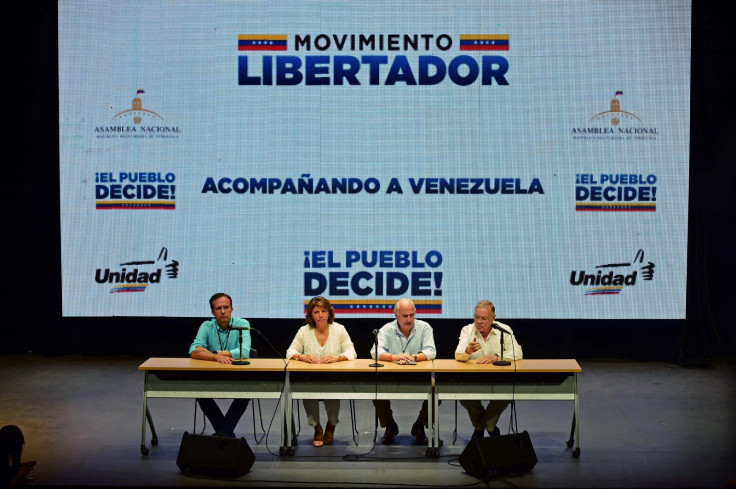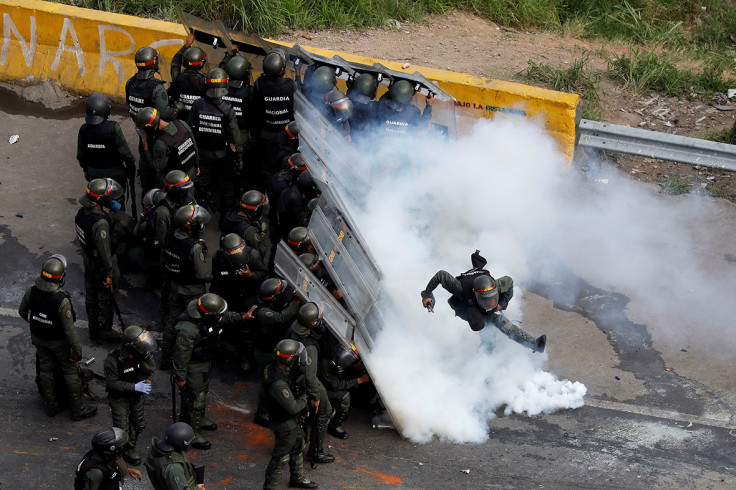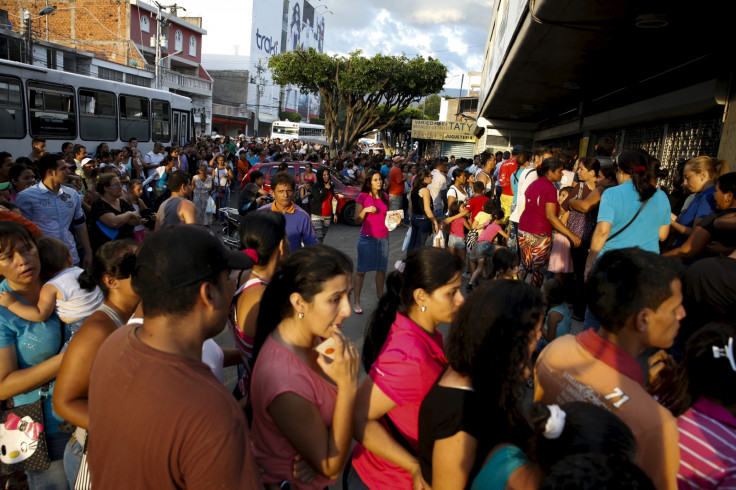Disgruntled Venezuelans throughout Latin America vote in unofficial referendum against Maduro – here is why
A 61-year-old woman was shot dead while waiting to vote in western Caracas city.
A 61-year-old woman was shot dead and three others were injured while waiting to vote in an unofficial, opposition-organised referendum in Venezuela.
The Sunday's (16 July) voting was held to reject President Nicolas Maduro's plan for a constitutional overhaul, which was termed as illegal and seditious by the government.
The BBC quoted the rector of the Central University of Venezuela, Cecilia García Arocha, as saying that more than 6.4 million people voted within the country and another 693, 789 at polling stations abroad.
Academics monitoring the poll told Reuters that 98% voters chose to reject the proposed new assembly and supported a call for elections before Maduro's term of office ends in 2019.
The attack on Sunday happened after some men on motorbikes fired at a polling site in a church in the traditionally pro-government Catia neighborhood of western Caracas city. Footage from the scene showed people running away from the gunshots. The opposition has blamed a "paramilitary" gang for the assault.
The deceased woman has been identified as Xiomara Soledad Scott. She died minutes after reaching hospital.
Speaking about the shooting, opposition spokesman Carlos Ocariz said, "We lament this very much, with great pain." Prosecutors have said that they would investigate the incident.
Meanwhile, in an another incident a journalist named Luis Olavarrieta was abducted, robbed and beaten by a group of people. But he managed to escape and is reportedly receiving medical treatment, the BBC reported.
According to reports, the unofficial referendum was organised to denounce the government's official voting on 30 July for a new assembly.

It was said that the new assembly would have the power to rewrite the constitution and to suspend state institutions. But critics and anti-government people believe that it would encourage dictatorship in the country.
According to the poll organizers, thousands of Venezuelans living in the country and abroad cast their votes. The referendum was held at several locations, including theatres, sports grounds and roundabouts within Venezuela and in more than 100 countries around the world.
"I'm poor but not stupid. We know that the government doesn't work, that they only use us to remain in power, to make us poorer all the time," Carmen Garcia, 33, a restaurant cook and mother of three, who voted against the government, said.
Though the vote was only symbolic, the opposition hoped that a big turnout will increase pressure for new government, leading to Maduro's downfall.
But President Maduro described Sunday's vote as "meaningless".
"They have convened an internal consultation with the opposition parties, with their own mechanisms, without electoral rulebooks, without prior verification, without further verification. As if they are autonomous and decide on their own," he said.
Months-long protests
The voting came amid ongoing protests in the country, which has been facing a political turmoil for the past several months.
Anti-government demonstrations started in the country in early April after the Supreme Court annulled the opposition-dominated National Assembly and removed lawmakers' immunity. Although the court retracted the ruling, there is still widespread anger against the government.
About a 100 people have died in political clashes and hundreds have been injured in several rallies over the past four months.

Protests intensified in May after Maduro called for a rewrite of the country's constitution in a bid to control the ongoing protests against his government. He has said that only the new constitution will help Venezuela out of its economic and political crisis.
He has argued that only a new constitution can "neutralise" the opposition and defeat "coup-plotters", which would lead to peace in the country.
But opposition leaders fear that the president's move towards a constitutional shake-up would delay this year's regional elections and next year's presidential election. They also believe that it is a "coup" by the government, which would further weaken the National Assembly – Venezuela's opposition-controlled legislative body.
Venezuela's political turmoil
Despite having the world's largest known oil reserves, Venezuela is going through an unprecedented economic crisis.
While Maduro's critics blame him for the country's woes, the president has alleged that the opposition and business community are responsible for the shortage of essential supplies.
The president has accused his opponents of blocking the supply of medicines to create a health crisis, which would help them plan a coup against him.

The country's economic miseries are likely to take a turn for the worse, with the International Monetary Fund (IMF) predicting that inflation will rise to 720% in 2017 and to over 2,000% in 2018.
Venezuela's acute shortage of almost everything from food to vaccines has forced thousands to cross the country's borders. People are moving to Brazil and Colombia, seeking a better life.
© Copyright IBTimes 2025. All rights reserved.




















